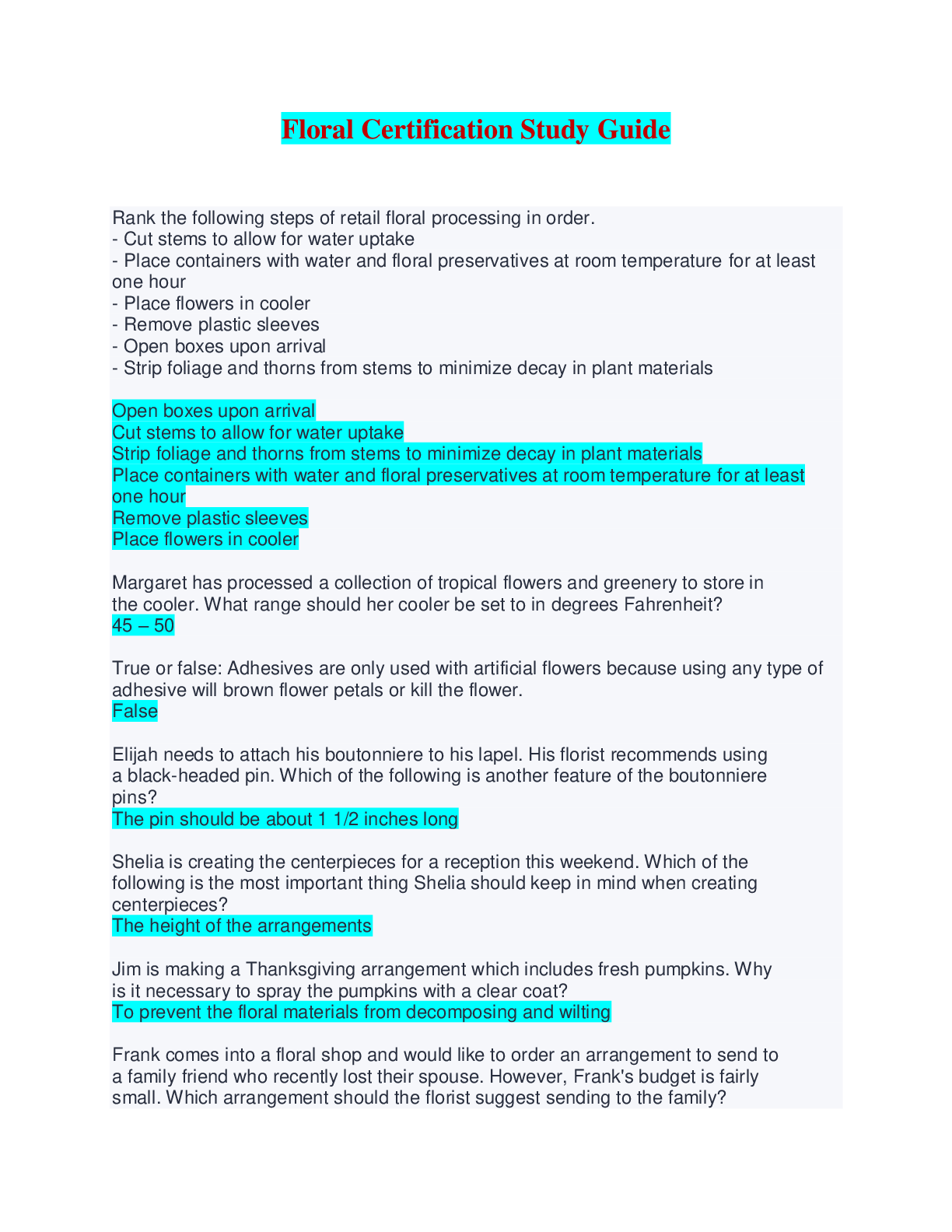
Floral Certification Study Guide - Questions and Answers
A college student who is working in northern Alaska during the summer reports that he or she has an increase in difficulty sleeping since moving north. During a pre-employment physical, the patient as ... ks the health care provider what could be causing this. The health care provider suspects the sleep disturbance is most likely because of which factor? a. Stress of the new job b. Increased daylight hours in Northern Alaska c. Physical demands of the new job d. Change in diet The health care provider is seeing a 16-year-old boy at the local clinic. The guardian is concerned about the patient’s lack of sleep. The guardian states that the patient “goes to school, works at a part-time job until 10 PM, and then stays up doing homework until after midnight. I am worried that he is not getting enough sleep.” What is the best response for the health care provider to give the patient and his guardian? a. “I don’t get enough sleep either; I spend most of my time studying.” b. “You need to discuss this with the primary health care provider.” c. “Sleep deprivation can cause a person to get sick or have excessive daytime sleepiness.” d. “High school is a tough time in life, but I’m sure he will be fine.” During a sleep study test, the patient states, “I never dreams anymore.” The health care provider tells the patient that everyone dreams, but most people forget about them upon awakening. The health care provider tells the patient that the best way to remember dreams is to do which of the following? a. Eat spicy food before going to sleep. b. Avoid caffeine in the afternoon. c. Consciously think about the dreams upon awakening. d. Become more creative. A new mother has brought in her week-old infant to the health care provider for a 1-week well-baby checkup. She is breastfeeding and has only been sleeping a couple of hours at a time during the night between feedings. She asks the nurse, “When can I expect the baby to sleep through the night?” What is the nurse’s best response? a. “Are you feeling tired, maybe you are experiencing depression.” b. “Most children begin to sleep through the night around 3 months.” c. “Most children begin to sleep through the night around 6 months.” d. “Are you feeling tired? Maybe you are anemic?” [Show More]
Last updated: 3 years ago
Preview 1 out of 15 pages

Buy this document to get the full access instantly
Instant Download Access after purchase
Buy NowInstant download
We Accept:

Can't find what you want? Try our AI powered Search
Connected school, study & course
About the document
Uploaded On
Feb 06, 2021
Number of pages
15
Written in
All
This document has been written for:
Uploaded
Feb 06, 2021
Downloads
0
Views
141
Scholarfriends.com Online Platform by Browsegrades Inc. 651N South Broad St, Middletown DE. United States.
We're available through e-mail, Twitter, Facebook, and live chat.
FAQ
Questions? Leave a message!
Copyright © Scholarfriends · High quality services·